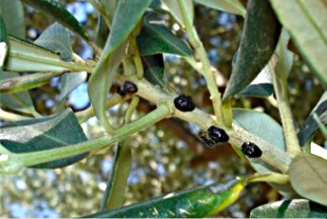

2015-03-01 Dott.sa Carla Petta posted:
Scale insects are part of the order Hemiptera, which includes aphids. Among the most widespread species are Icerya purchasi, Saissetia oleae (with rigid outer shield, often dark in color), Ceroplastes (with adult forms coated with a waxy shield), Pulvinaria, Pseudococcus and Planococcus citri (citrus mealybug). These insects pierce the leaf blade or young stems, and feed on the sap contained in them, which is rich in sugars.
The parasites commonly known as scale insects are myriad, with dozens of various sizes, from a few millimetres to half a centimetre or more. They typically colonise young parts of plants, buds and leaves in large numbers. There are also species that infest the roots, causing serious damage to the plants. Males are have wings, while females do not and, sometimes, after having spawned, they also lose their legs, becoming effectively protective containers for the new generation. Scale insects are easily recognizable from other insects because they tend to become covered with waxy protective substances, constituting a hood-shaped small shield, disc, that is rigid or rubbery, depending on the species. Scale insects spread on conifers, on many ornamental plants, vines, and citrus trees. They develop best in cracks, fissures, and under leaves that receive little light. They prefer plants that are regularly fertilised with high nitrogen content, in places with low humidity and poor ventilation.
Even these insects often are moved about on plants by ants, which feed on honeydew. Sometimes, the presence of ants on our plants reveals the presence of parasites in areas that are not visible. Massive scale insect infestations can produce abundant honeydew, which favours the development of sooty mould. These insects have had, and still have, a great commercial importance, as the body of the females can be used to produce a food dye, carmine red (also known as "cochineal"); they are usually "farmed" on large opuntia.
How much it cost?